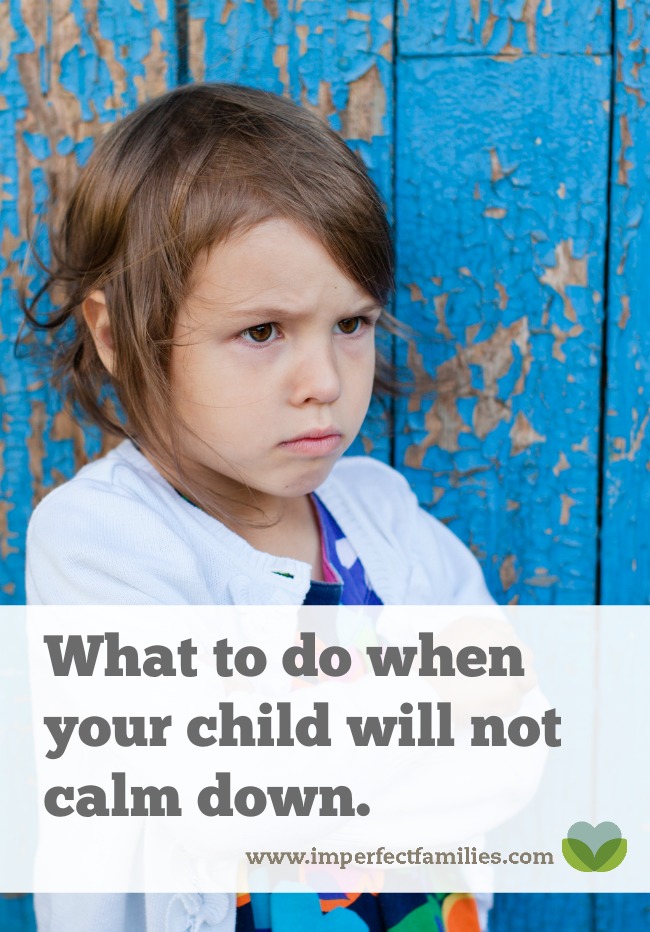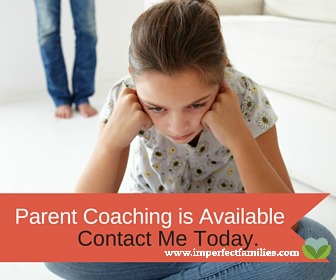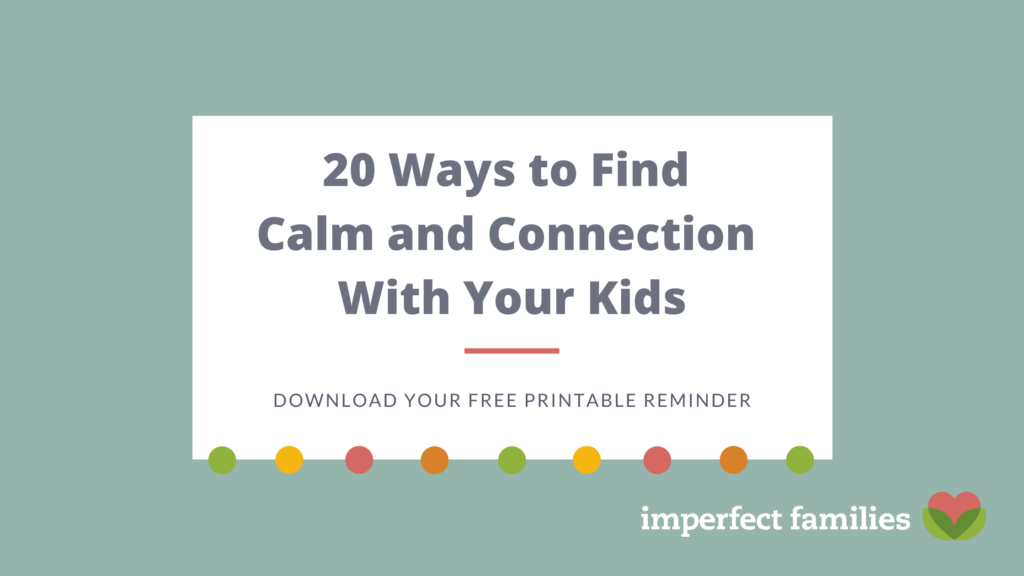You’ve tried everything but nothing seems to help your tantruming child settle down. Anger and frustration over “little” things can sometimes last an hour (or more!). These tips will help you stay present and positive with your child, even when they don’t calm down immediately.

You give your child one more reminder, “Turn off the iPad, please.”
And that’s all it takes. He’s off like a rocket.
First refusing…then yelling…finally, screaming. The tantrum has begun.
You roll your eyes. Not again. Why does everything turn into an explosion?
“Settle down, honey. It’s not the end of the world.”
But he does not calm down.
In fact, the more you try to talk him down, the more agitated he becomes. You know from experience that this can go on for a while…sometimes even an hour!
Starting to panic, you wonder, “What are my options?”
How to help your child calm down during a tantrum.
- Keep yourself calm: Just because your child is flipping out, doesn’t mean you need to join them. Instead, do what you need to do to stay calm so you can help your child through these big feelings. You may find that you need some fresh air, a glass of water, or lots of deep breaths to stay present.
- Skip the rationalizing: In this moment, your child is not thinking logically. Even if your child is upset about something minor or totally irrational, it feels major and important to them. Save reasoning and teaching for when your child is calm. Avoid adding the word “…but” to your comforting phrases.
- Be Quiet: Many parents talk more when they are feeling overwhelmed, stressed, or pressured. Observe how talking impacts your child when they are upset. If your words seem to add fuel to the fire, it may be better to sit silently. Offer non-verbal support, such as outstretched hands, a concerned, understanding face, or just staying nearby.
- Physical touch: Rather than moving quickly from silence to problem-solving, take it slow. Your child’s brain may still not be calm enough to hear your words of support. For some children, a backrub, hand massage, foot massage or hair brushing is a great way to help them relax again.
- Use connecting phrases: When we tell our kids to “calm down,” they often feel more discouraged or upset because they cannot get their brain or body to calm. Instead, share your own sense of calm and remind them that they are loved, even in their big feelings.
- I’m here
- We will get through this
- I love you
- Let’s take a walk
- Come sit with me
- It’s OK to cry
- You are safe
- I’m not leaving you
- You are sad about…
- You feel upset because…
- I believe you
- Let’s take some deep breaths together
- I’m going to take some deep breaths
- You will feel calm again
- You won’t be mad forever
- Would you like to snuggle?
- Let’s get a drink of water
- Your body knows how to calm down
- What do you need right now?
- I’m still here
- Be Empathic: You don’t have to agree with your child’s perspective to understand where they are coming from. Rather than trying to “get” your child to calm down, ask yourself, “How would I like someone to respond if this happened to me?” Would you like silent support, a calm reminder, encouragement, or a hug?
Related: 25 Things That Impact Your Child’s Behavior
Of course, we’d prefer that our child’s emotions simply “switched” from angry to calm in an instant. In reality, it may take 20 minutes for your child to “calm down” from a big emotion.
Be curious rather than critical. Try a few things and see how your child responds.
Remember, emotions are not logical. They don’t follow a script or step-by-step solutions. It may take some time, maturity, and flexibility to find something that works for your child, and that’s OK.
Each child is unique. What works well for one child may be too stimulating for another child. You are the expert on your child.
If your child continues to struggle to calm their emotions, you may decide to seek out more support from a mental health professional. Or, schedule an Online Parent Coaching session with me! We can talk through your child’s challenges and explore ways you can help them manage these big emotions.




Comments have been turned off to retain the privacy of all families. If you have a question or comment on the topic, you're always welcome to contact me.